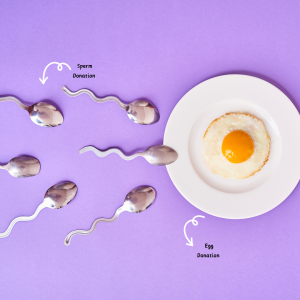The decline in fertility in Australia and beyond is a growing concern, generating a buzz regarding social and economic consequences. The current assumption that this is a result of deliberate decision-making to avoid or delay having children is challenged by statistical data, and there is now a greater force at a policy level on helping couples achieve their dreams of having children and growing their families to their desired size.
Despite most women and men in first-world countries such as Australia wanting to have children, some do not achieve their reproductive goals, and approximately 1/4 of women end their reproductive years childless, with many more not achieving their desired family size. While many social and other factors contribute to people not attempting to conceive, including financial pressures and lack of a suitable partner, as many as 1/7 couples struggle to conceive and might be categorised as infertile. The increased age of both women and men at the time of trying to conceive is one of the leading causes of infertility. For many people with infertility issues, fertility treatments such as in vitro fertilisation (IVF) might present their most realistic chance of having a baby or realising their desired family size.
While there is a presumption that residing in a high-income country such as Australia enables men and women to manage their fertility optimally and access infertility diagnosis and treatments, this might not be the case for many. Exploring the issues and barriers to reproductive treatments and their likelihood of success is crucial to mitigating the problem and optimising outcomes. Broadly, these factors fall into two categories: barriers to access to fertility treatment and barriers to treatment success. Therefore, a range of approaches are required to address the barriers to forming a family.
Several factors are relevant for couples and individuals in starting a family. These include financial costs of treatment, lack of knowledge regarding fertility issues and psychological stress. It is noted that psychological barriers could consist of the stigma of being labelled infertile but do not receiving adequate support from family. Ultimately, education of the public and health providers was thought to be the best approach to resolve these issues. One other factor considered to be relevant was the rapidly growing issue of obesity; many clinics have limitations as to meeting a particular BMI range to be able to commence treatment. Similarly, age is also a factor that patients and some health providers are still unaware of its significant impact on success. Thus, proactively looking at these issues at an earlier age will profoundly assist people in achieving success. This included considering freezing eggs as an option for women who weren’t in a relationship. The ability to access donors for sperm or eggs in Australia also made a problematic proposition for individuals or couples who want this treatment path.

Talk to your GP fertility specialist or contact us on (03) 8788 7110 to learn the steps you can take to organise your first session with us.

